Monika Schaefer
The Flipside with Monika – Ep 27
Germar Rudolf
Sat, Jan 18, 2025
[In this weekly podcast episode The Flipside with Monika on Republic Broadcasting Network, Canadian nationalist and author, Monika Schaefer talks with, writer, translator, publisher, PhD Chemist and holocaust skeptic Germar Rudolf about; the passing of a revisionist giant, Jurgen Graf; Germar’s Holocaust Encyclodpedia; and his latest encounters with “the system”.
– KATANA]
https://holocausthandbooks.com
https://holocaustencyclopedia.com
https://www.republicbroadcastingarchives.org/the-flipside-with-monika-january-18-2025/
https://freespeechmonika.com
https://gab.com/MonikaSchaefer
https://odysee.com/@MonikaSchaefer:2
Monika’s book: https://barnesreview.org/product/sorry-mom-i-was-wrong-about-the-holocaust/
Published on Sat, Jan 18, 2025
Description
Print this article ✉ Send e-mail
The Flipside with Monika, January 18, 2025
RBN
By RBN
January 18, 2025 20:00
Related Articles
The Flipside with Monika, October 26 , 2024 1 26.Oct
The Flipside with Monika, October 19 , 2024 1 19.Oct
The Flipside with Monika, September 21, 2024 2 21.Sep
Podcast: Play in new window | Download
Subscribe: RSS
Episode 27: Writer, translator, publisher, PhD Chemist and holocaust skeptic Germar Rudolf joins Monika to discuss his latest encounters with “the system”.
Social media
Share this article
Print this article ✉ Send e-mail
RBN
By RBN
January 18, 2025 20:00
Write a comment
3 COMMENTS
_____________
Following Transcript Quality = 5 Stars
1 Star — Poor quality with many errors, contains nonsense text 2 Stars — Low quality with many errors, some nonsense text. 3 Stars — Medium quality with some errors. 4 Stars — Good quality with only a few errors. 5 Stars — High quality with few to no errors.
NOTE: Readers can help improve the quality of this transcript by putting corrections in the Comment/Leave a Reply section. Don’t be just a consumer, contribute to the cause, however small. Thanks.
TRANSCRIPT
(Words: 8,010 – Duration: 60 mins)
[Intro music]
[01:00]
Monika Schaefer: All right. Greetings. Hello, good afternoon, good evening, good morning, wherever you might be listening from. You are listening to Republic Broadcasting Network at Republicbroadcasting.org and this is episode 27 of The Flipside with Monika. And I am your host, Monika Schaefer. And I am very pleased that my guest today will be Germar Rudolf.
Before I bring him on, though, I have some announcements, you could say, a public service announcement. And one is about an event, and the other is sad news that we will talk about with Germar together.
But the first one has to do with there’s a meeting going to happen in Powell River, British Columbia, Canada, and that is on the West coast. It’s on the Sunshine Coast. And I am telling you this because if you know anybody that’s on Vancouver Island or in Vancouver or along the Sunshine Coast, please tell them about this meeting because they should go! What it is Leah Gazan, that is the Member of Parliament from Manitoba, who has introduced a Bill last Autumn that is to criminalize the promotion of hatred against indigenous people. If you are condoning or justifying or downplaying the historical and lasting impact of residential schools.
Now, these are these Indian residential schools in Canada that I have spoken about before. She will be in Powell River this coming Monday, January 20th. And just a little bit about her. She has this thing called “being a survivor”. I mean, it’s in her blood, on her maternal side. Her grandmother was a Lakota Indian and apparently was a survivor of a school. And her grandfather was Chinese. And her paternal grandparents, they were both jewish. Father was born in Holland, the paternal grandfather, I should say. And he was a toddler when Germany invaded, and he spent the war years in hiding in Holland. And the grandmother was in a concentration camp apparently in Germany. So Leah Gazan has this survivorship all really, she’s expert at it. She’s got it down pat. She introduced this bill. To me, this Bill sounds very, very similar to the Holocaust denial bills in various countries, including in Germany, where myself and my brother Alfred were both in prison.
And so, yeah, it’s an issue that I think is really important.
Now, the woman who is the local MP there on the Sunshine Coast and Powell River, somebody Blaney*, I can’t remember her first name. She says:
“It’s not debatable that it occurred.”
And she’s talking about the residential schools happening. Yes, they did happen, just like the work camps in Germany happened.
[* MP Rachel Blaney to host community discussion on Indian Residential School denialism
Powell River, BC – NDP MP Rachel Blaney invites community members to an important and timely discussion on the harms of Indian residential school denialism and pathways toward truth and reconciliation. Blaney will be joined by special guest NDP MP Leah Gazan, a lifelong educator and human rights advocate. The free event will be held on Monday, January 20, 2025, at Evergreen Theatre in Powell River with a welcome reception at 5:00 pm and a discussion at 6:00 pm.
The discussion will focus on the ongoing harms caused by Indian residential school denialism, explore its impact on survivors and communities, and discuss actionable ways to advance truth, justice, and reconciliation. Gazan will also speak about the importance of Bill C-413, a proposed bill aimed at preventing the promotion of hatred against Indigenous people.
“This discussion is about honouring the fact that Indigenous people who have lived through residential schools or are related to survivors of residential schools should not be put in a position where they have to defend that those experiences happened,” Blaney says. “We collectively as a country must embrace the fact that residential schools happened and hold that as a collective truth. It’s not debatable, and every time we act as though it’s debatable that it occurred, we are silencing the voices of people and their families and loved ones who went through that lived experience.”
“Residential school denialism jeopardizes the safety and wellbeing of survivors, their families and Indigenous communities,” said Gazan. “It is simply an incitement of hate against Indigenous people, which undermines any progress made towards reconciliation. We need to protect the stories of survivors and ensure denialism is stopped.”
This event is an opportunity for individuals of all backgrounds to learn, engage, and reflect on how communities can work together to honour survivors and ensure truth is at the centre of reconciliation efforts.
Admission is free; however to help plan for food and setup, those wishing to participate are encouraged to register on Eventbrite. Event Details: Name: From Truth to Action: Ending Residential School Denialism. Date: Monday, January 20, 2025
About Leah Gazan: Since 2019, Leah Gazan has been the NDP MP for Winnipeg Centre. She is a member of Wood Mountain Lakota Nation, located in Saskatchewan, Treaty 4 territory. Her 2022 motion recognizing residential schools as an act of genocide received unanimous consent in the House of Commons, as did her motion to recognize the ongoing genocide of Missing and Murdered Indigenous Women, Girls and Two-Spirit Individuals as a Canada-wide emergency. In September 2024, Leah introduced Bill C-413 An Act to amend the Criminal Code (promotion of hatred against Indigenous peoples) to criminalize the wilful promotion of hatred against Indigenous peoples by condoning, denying, downplaying or justifying the Indian residential school system in Canada through statements communicated other than in private conversation. Source: https://rachelblaney.ndp.ca/news/mp-rachel-blaney-host-community-discussion-indian-residential-school-denialism]
And another parallel, you see. So she says:
“Every time we act as though it’s debatable that it occurred, we are silencing the voices of people and their families and their loved ones who went through that lived experience.”
Again, I see so many parallels with the Holocaust and this is our own, you know, Canadian so-called “genocide”. And they are going to criminalize you if you are merely skeptical about what they are telling us in that regard.
So that meeting again, if you have any friends in that area of either Vancouver Island or Vancouver or north on the Sunshine Coast, tell them about this meeting. It’s January 20th, starts at 5 pm at the Evergreen Theater. And yeah, that was that public service announcement.
And then I have sad news that a great man in our movement and that is the, you could say the “Revisionist” movement. I personally am not fond of that word. I would rather call it “Correctionist”. We are correcting history that we’ve been lied to about.
Nevertheless, Jurgen Graf (15 August 1951 – 13 January 2025), he has passed away this week, Monday, January 13th. And like Germar Rudolf, Jurgen Graf is a giant in our movement of trying to get the truth out there. He not only wrote books, he translated many books, and he apparently was very fluent in quite a few languages. And I think that Germar will be able to tell us more about that after I bring Germar on.
And I think at the beginning I was distracted by the fact that we didn’t have Germar on yet. I forgot to tell you the date today is January 18, 2025.
Also, just a little reminder that if you possibly can, dear listener, if you have the means, please remember that this is a listener supported network and if you go to RepublicBroadcasting.org you will find all the information there for how you can support the network either through phone number, through PayPal, through mailing cash or check. There are different means. There’s a donate button there and there’s the information there.
So all right, now I see that we have Germar here. I’ll just give a little bit of background and then I’m going to bring him on.
Germar Rudolf has written books. He has published many books through this codoh.com, that’s Committee on Open Debate on the Holocaust and Castle Hills Publishers. He will tell us more about all these things. The latest big work is the Holocaust Encyclopedia. Fantastic information in there! And he has been under the gun for all these things.
[Image: Jurgen, Carlo, and Germar]
Now he comes from Germany, he is a PhD level chemist, became curious about certain things that were a little bit of anomalies there in Auschwitz and then started to investigate and get into some trouble he is in the United States. I have no idea where, but he is on the line now. And Germar, are you there? Greetings to you.
Germar Rudolf: I am. Can you hear me?
[08:33]
Monika Schaefer: Yes, we can. So would you like to just before we get into, actually two topics. One would be to talk a little bit about your dear friend Jurgen Graf, and also your latest adventure, or shall we say your latest encounter with “the system” in quotation.
Before we get into that, would you like to expand a little bit about your history in case we have some new listeners? I’m always hoping that we have new listeners. And on that note, I do encourage listeners to share these programs with others who you think need to hear these programs. Okay, go ahead, Germar.
Germar Rudolf: Yes. Well, where do I start? Shall we start with my dear friend Jurgen?
Germar Rudolf: We both had a similar introduction into revisionism in the early 1990s. We both learned about skepticism on the mainstream Holocaust narrative via the Canadian free speech trial by Ernst Zundel, the second one of 1989, where American expert on execution technologist Fred Leuchter appeared as a witness. And his report [The Leuchter Report] caused quite some stir internationally. Well, internationally you can say, it was translated into a lot of languages. And both Jurgen and I found out about it, got curious about what’s going on since forensic evidence is considered superior to any other, in particular to anecdotal evidence. We both picked up our ears. He was, however, a linguist and not a scientist, where I was a scientist and not a linguist.
[See: Book: White World Awake! — Stopping the Planned Extermination of Our Volk]
Actually, as a matter of fact, I couldn’t speak any foreign languages. My English back then was so bad that I couldn’t even read normal English text fluently.
So he is fluent in, or was, I should say, unfortunately, 12 languages, if I’m correct, maybe it may have been more. And he took a historical-social approach to the topic. He was in touch with French scholar Dr. Robert Farrisson, who is one of the early leading lights in Holocaust skepticism and learned from him the ropes and then started writing a book in seclusion. And I was at the same time going down the scientific, the forensic rabbit hole, trying to figure out whether the infamous Zyklon B deployed in Auschwitz, presumably for mass murdering jews, could have left any long term traces in the Masonry of those alleged gas chambers. And if it could have left them, would they survive the time? And if they survived the time, could we still find them there?
[Image: Fred Leuchter holding up his original report]
So there’s this question that was raised by Fried Leuchter. But it was answered too hastily, too superficially. And I wanted to figure out really properly. I was not doing it in seclusion because as an expert witness, I was then actually showing up in various German trials, summoned by defense teams to testify on behalf of people who were on trial for, quote, unquote, “Holocaust denial”. And that, of course, I had to have my name under the expert report I wrote. And I had to appear under my real name as a witness. And that got me straight away in the cross-hairs of the authorities who were targeting me. And persecution started right there.
My expert report and a popularized book that was broadening the scope to many more topics. Both were published in 1993. At the same time Jurgen Graf had also published his two books. One called “The Holocaust Swindle”. The other one is “The Holocaust on a Test Stand”.
And we found out about each other’s existence only when we heard that each other’s books had been published. It was a little bit surprising because our point of contact should have been Robert, who was in contact with both of us, who advised us. And he actually kind of proofread my first version of my expert report to make sure that from his point of view, everything is straightened out. And he found a few flaws in it, fix it, helped me along the way.
But anyway, he kept us separate. So we found out about each other sometime in 93. We met for the first time in 94, which was about the time that he got in touch with Italian researcher Carlo Mattogno, who is probably the most knowledgeable Holocaust expert on the whole planet. He was just gearing up back then, and the way he geared up, he wanted to go, after the collapse of the Soviet Union, to all the archives that were containing massive amounts of documents on the camps where “it” is supposed to have happened, whatever “it” is.
They were tucked away for decades after the war. The Soviets or Poles, or whoever, had tucked them away for the most part, were not accessible, or not even known to exist to Western scholars, or any scholars for that matter. And after the collapse of the Soviet Union, they became known and accessible.
So Carlo Mattogno, who couldn’t speak neither Polish nor Russian, wanted to get into these archives. Jurgen Graf was fluent both in Russian and Polish. So they teamed up and went on numerous trips to various places where the “crime of the century” is said to have happened. To get not only a forensic look at the leftovers in those camps, but also go into the archives, copy thousands and tens of thousands of documents, and started analyzing these. They sat down and wrote a number of books together, one on Treblinka, one on Majdanek. They are probably the most well known that they did together. They are part of the Holocaust Handbook series that I then started publishing.
So we were kind of a trio with Carlo Mattogno doing most of the hard archival work. Jurgen Graf was being the interpreter, doing the journeys and he was translating Carlo’s Italian stuff into German for me. I was the publisher initially only in German, and later when I was in English or American exile, polishing up my English, improving it to the point where I could actually publish academic level texts, was the one who was getting the message out.
Over the decades to this point, we have published 53 hard hitting archival forensic studies, for the most part. It’s the most comprehensive research study series on the Holocaust that exists in the world. It puts any mainstream work to shame! And it is the one series that makes the saying true that:
“The Holocaust is the best investigated and documented event in history.”
But not as the mainstream claims, but we are the ones who actually document it. The mainstream has, since the war, until the Soviet Union collapsed, collected anecdotal evidence. That’s not documented history! That is “chatted” history.
[16:04]
Monika Schaefer: I like that what you said, because that’s always what they say:
“This is the best documented event in history!”
And yeah, it is.
Germar Rudolf: Yes it is! Because of holocausthandbooks.com. So 53 books, so much information and they’re complete overkill! Carlo Mattogno has the ability to go into the last nooks and crannies and describe every nut and bolt that was ever fixed in a German concentration camp because so much is documented. The Germans with a bureaucratic frenzy had documented every pencil then pushed from the left to the right of their desks. So I exaggerate here a little, of course.
Monika Schaefer: [chuckling] I think that’s great what you say, because the Germans are kind of, shall we say, putting it politely, they’re teased for being very meticulous about detail. So that is very important. It’s exciting.
Germar Rudolf: And it is fortunate because when it comes to two of the most important camps Majdanek and Auschwitz, there are mountains of documents! And the claim that the Germans destroyed something because they wanted to hide their crimes, it’s just wrong! No, they left it all behind. The Russians grabbed it and hid it in archives. And now it has become accessible, for a while.
In 1998, 99, the German government put both the Polish and the Russian government under pressure to close the archives and make them accessible only to accredited, officially recognized scholars. So we were excluded again from that point onward. But by that time we had enough material and we think the most important material to actually fill all these studies.
Now there is so much material that I have published over the past 35 years, both in English and German, over and over again in new editions and transformed into audio books and ebooks and all the rest of it.
And I had all this knowledge and access to it, but I had no overview. Even though I should be the one that has the best overview. It was just too much information even for me to retain. Many times I was looking for something that I know is written in some of the books. Where can I find that information? And I could pinpoint 3, 4, 5 volumes where it probably is. I had to look it up and search until I finally find it in one of my PDF files. And it happened over and over again! And finally I was sick of it!
And we had the idea we need to do something about it. An encyclopedia needs to be done, where certain keywords and buzzwords can be looked up and all the pertinent information is right there with a reference where you can find it mostly in our own books, but also mainstream literature, in periodicals, articles and so forth, whatever the case may be. So that the eternal search for something:
“I know I published it! Where is it? I can’t find it! This or this, or this?”
It finally ends! If I want all the witnesses that have ever claimed that flames shoot out of chimneys, which for technical reasons it is impossible, it’s invented. This is a cliche of the Holocaust that you can now find which witnesses have said it. How do I know? I go to the Encyclopedia. “Flames coming out of chimney” is an entry in there. Boom! There’s a long list of witnesses, all of which have copied from each other and all of which have lied!
And so there are a lot of features of the Holocaust where you can do that. And you look it up and boom, there it is! You will find it in no other resource. It’s wonderful! And I finally don’t have to search my own books anymore because I have it summarized.
Monika Schaefer: Yay!
Germar Rudolf: Yay!
So it was a selfish enterprise to finally not have to do it anymore. But the thing has been out for two years. We’re in a third edition now. So print on demand. We always make new editions that we keep up to date and correct whatever corrections are necessary. We have sold so far 2,000 copies. Roughly 2,000 copies direct marketing mainly of a specialized encyclopedia. This is unique! We are completely banned from Amazon. No libraries buy our book. Normally these specialty encyclopedias almost exclusively get bought by mid size and large libraries. There is no market really for it. But this one is such an amazing book. People read it cover to cover because every entry is just wonderful!
Monika Schaefer: Well, I can attest to that. I can attest to that. One of those is getting into my home. [chuckling]
Germar Rudolf: We are getting off the track. We were with Jurgen Graf.
Monika Schaefer: Yes, well, we wanted to talk about., … But you know, this is great anyway because I did want you to give some of your own history. And in so doing this is what is going on. So that’s fantastic!
[20:42]
Germar Rudolf: And just that was created by this trio of Carlo Mattogno, Jurgen Graf and me. I’m putting it out, making it fit for publication, present it that is presentable and accessible. Jurgen Graf has done a lot of the translation work, at least for the German edition. And Carlo Mattogno is the heart and the engine of the whole operation with producing most of the stuff.
So one of these trio of massive revisionist, skeptical producers of hard hitting scholarly material has now died, unfortunately, just a week ago. And I’m very sad for that.
I met him the last time in 2002. He came visit me with his wife. Back then I lived in Alabama, and he was with me for two weeks. We went hiking, we sang our German hiking songs and even back home we were having some campfire romance without the campfire, but the romance was there with singing folk songs. His wife Oda, Belarussian, and she is rooted into Russian tradition of Russian folk music. And there are some German folk music songs which have been translated or borrowed, should say, from Eastern European countries. They have a little bit of a Russian feel to them when it comes to the melody. And she loved it! Listening to music that sounded like home in the middle of America sung in the German language. A cultural mix that was quite amazing!
Anyway, we had a good time, last time I met him in person. Wonderful fellow, dear friend and a genius when it comes to languages. Speaking Indonesian, Chinese and almost all of the European languages they can come up with. A fantastic fellow! Unfortunately a victim of cancer.
Monika Schaefer: Yes, I’ll add, I only got to know him and not in person, not face to face like you, just in the last couple of years because, and I think this is probably it turned out to be one of the last major pieces of work he did because he did become ill during this project. But he did translate my book “Sorry Mom, I was Wrong about the Holocaust” into German. And we worked together on that. He would, because I do have a fairly good knowledge in German, he would send me chapter by chapter as he was translating. And I must say he does his translating work from his head. He does not use any computer translating, what do you call it, program? So it is, I think, very, very superior translation because he would just describe something the way one would say it in German, rather than sentence by sentence, just fixing the grammar or whatever. But really I think the German book turned out better because he made improvements and then the publisher did as well. So usually the translation of a book is not as good as the original, but in this case, that is not correct. I think the German book turned out better because of Jurgen Graf’s amazing work!
And so each chapter he’d sent me, and then if he didn’t, I would read them, and if it didn’t quite get the gist of this or that in the telling, then I would give him my feedback and he would make the corrections to that, and then we’d send it off to the publisher bit by bit by bit.
And I got to know this man, and not only is he a genius with knowing, I didn’t know that until a few days ago that he knew so many languages. Somebody told me 15 languages. I don’t know if that is correct, exact. But he obviously was a genius. He was a genius, but not only in the languages and also in his knowledge about historical events, but a very, very nice man! Good humor, just really sensitive. I have nothing but good things to say about this man. I’m going to pass it back to you, Germar, please.
Germar Rudolf: Yes, yes, absolutely! He was an artist when it comes to two languages. He would turn a book, a text in general that was a little dry, a little on the boring side, a little bit too technical, turned it into a text that was wonderful to read. He enlivened text with spirit! Sometimes he put in irony and sarcasm where I think it was deserved, because some of the material you have to deal with as a Holocaust skeptic is really absurd and sometimes even grotesque. Now, with scholarly text, you have to be careful with sarcasm and irony. And he was pushing it a little bit too much at times. [chuckling]
But when it comes to my. To my personal flavor, I would say:
“Right on, give it to them!”
Sometimes I had to edit it out because the author didn’t want that. So he wants it to be dry because such a controversial topic, he doesn’t want to ruffle any feathers.
But anyway, other than that, yes, he constantly, systematically turned text into something that was better, that was more pleasant to read. So it was wonderful!
He focused on translating from the 12 languages. German, French, English, Russian, Polish, Danish, Swedish, Norwegian, Spanish, Italian, you name it. He was roaming throughout Europe, and he would lecture in those languages live in those countries to audiences. This is amazing! You have to have this fluent ability to speak and express yourself expertly in all of these languages. And he taught many years German, I think, in other languages in Indonesia and in China. So he learned those languages too, along the process. So quite amazing! Quite amazing!
Monika Schaefer: Germar, I have a question regarding the translating services that he did. The work that he did he translate in both directions? Like, for example, would he translate a German book into French or Italian or whichever other language? Did he do that, or did he mainly translate other languages into German?
[27:18]
Germar Rudolf: He could, but he refused to. He has done here and there, English text, but he knew that his command of those other languages is not on par level with what he expected the quality of his translations to be. Therefore, he usually refused to do that, and only when pushed would he agree to that.
So, yeah, mostly he would translate from those languages into German, and not the other way round.
Monika Schaefer: Yeah.
So I think we’re gonna be at the break soon. And the original intent to invite you on my show was to speak about your latest adventures, or misadventures. But I am so glad that you were able to talk about Jurgen Graf, because you know him better than most of us, certainly a lot better than myself. And I just think this was very, very important to talk about him.
And we will talk about some of the things that you, I think you were arrested. Why don’t you just start on that? And then when the break comes, we’ll go to the other side.
Germar Rudolf: Well a little bit of the background. If people had humor in this country, you know, I’d say the cliche is the Germans don’t have humor because I tell people:
“Well, because in Germany, humor is illegal. You can go to prison for it. Therefore, Germans are not inclined to make jokes.”
So I say:
“The shortest German joke is ‘Auschwitz’, because the German word for joke is ‘witz’.”
So the last syllable of Auschwitz is the word witz. So Auschwitz is a witz. Auschwitz is a joke!
Monika Schaefer: Oh, wonderful!
Germar Rudolf: You go to prison for that if you say that! And there are so many other [word unclear], you make jokes about mass immigration, about minorities, you go to prison for that!
So if you have a culture for decades, it started with Frederick the Great, and he started the censorship in Germany, and it’s been a tradition ever since. And it’s gotten worse and worse and worse with the first pinnacle, you can say, under the Nazis. And now in modern Germany, again.
Monika Schaefer: So Germar, we’ll carry on with this after the break and so I hope everybody hangs on and we’ll talk to you in a few minutes. Thank you.
[29:30]
[music]
[29:45]
[ad]
[36:01]
[music]
[36:43]
Monika Schaefer: All right, welcome back to The Flipside with Monika. I will give out the numbers now if you’d like to call in and join our conversation with our very special guest, Germar Rudolf. And the numbers are, 512-248-8252, or 1-800-313-9443.
Now, I just want to say that what I have seen of just the accomplishments of Germar Rudolf is that he must be one of the hardest working people that I know. And it is just phenomenal, how in German there’s a word “fleisig”, he’s just very hard working man. And so I just want to thank him now publicly for all the work that he has done over the years, over the many years and paid quite a price for all that work.
Now, Germar, I wrote you a letter and I don’t think you got that letter. And let me tell you where I sent that letter. I wrote it on December 27th and this is after our long mail strike in Canada. Finally, things were moving a little bit, although they were moving pretty slow, but I think you still wouldn’t have got it. I sent it on December 27th to Cattaraugus County Jail. Am I saying that right? Where is that? And what were you doing there? [chuckling]
Germar Rudolf: I was moved from there the day before. So you wrote it a day after I had been moved from there. So it would have been completely an effort in futility. Cattaraugus Jail, Cattaraugus County is, if I’m not mistaken, the West most county or one of the West most counties of upstate New York.
I was driving in my car west. I was planning to go to a dear friend of mine who had succumbed to cancer and was having health problems. And she was the last survivor of her family and had no one really. And I said:
“I’m coming over, I’m taking care of you. I can take my stuff with me and work from there and we’ll just have a good time, whatever time is left for you.”
Because she was terminal and they didn’t give her a lot of time, even though it turned out at the end it was even faster than they had predicted.
Anyway, I was on the way there and I got pulled over by the police because there was allegedly an arrest warrant out for me for or some minor thing in a different state, that is to say Pennsylvania. And normally that is a non-extradition affair because for misdemeanors they don’t go through the hoops of making extraditions. It’s very complicated. It goes from one state to the next and it’s time intensive and cost intensive and usually they don’t do that. And actually my case was marked as non-extraditable. So they called the Pennsylvania prosecutors and evidently that changed their mind. And he said:
“Yes, we want him.”
Monika Schaefer: And just on that note, I’m going to interject here. Do you think that this changing of their minds had anything to do with your volumes of work that you do? Even though this was on a completely unrelated trivial charge from a couple of years ago? What do you think?
Germar Rudolf: Pure speculation! Fact of the matter is, the case was two and a half years old. And in those two and a half years I have written an encyclopedia and the team I’m working with on marketing and all the rest of it, we had quite some success lately. As I mentioned, we have so far sold 2,000 copies to normal people for all walks of life. This is completely unusual!
So we have two unusual things. Normally a person doesn’t sit down and writes an encyclopedia. That’s to say teamwork of many scholars usually and takes a long time. And I wrote that thing in just five months.
So this is an unusual. A Singularity in history because I had all this knowledge already gathered and on my desk and right there at my fingertips. I was in a unique situation to be able to do that.
And then I had all the energy after my family had collapsed. It’s a different drama story.
[40:59]
Monika Schaefer: I’m very sorry. I’m very sorry.
Germar Rudolf: Yeah. That has a long story. I don’t want to go into detail, anyway.
Monika Schaefer: No, we don’t really have time to get into those.
Germar Rudolf: Anyway. I was a caregiver of three children and ran a household. That was my primary thing. Revisionism, I was doing on the side.
And then suddenly all this disappeared and I was without purpose and aim. And a good friend of mine gave me purpose and aim back by saying:
“We need this encyclopedia because nobody can wrap their heads around this massive amount of work of 53 volumes. Impossible. You want to read it by the time you reach the middle you have already forgotten at the beginning!”
So I sat down, did it and then we got a good marketing strategy. It’s actually working! We’re breaking through all the censorship and blocking attempts of the enemy, going directly to the customer, circumventing anything of what they have put into the roadblocks there. Working wonderful!
Does it have an impact? When I saw we’re having more success, I said to one of my associates:
“Looking at past successes we ever had, knowing that as soon as we have success, the hammer falls. Some big move comes and they shut everything down.”
So something is coming our way. We don’t know yet what it’s going to be. Is it that? I don’t know. Behind the scenes, maybe it is, maybe it’s not so pure speculation at this point.
Now, coming back to what the background is of, why is there an arrest warrant for me. Let me get back to the humor and try your American-Canadian humor. Talking about cultural collisions. So as an immigrant who, by the time I came, had a fairly good command of the English language already. Not perfect, but fairly good, what struck me, coming from England to America, one of the first things, driving in people’s cars, showing me the countryside, is that you guys park on driveways and drive on parkways. You people need to clean up your language! [Monika’s laughing]
So this is a joke. But no, there’s a second, and that’s where it gets serious. If I were to buy, as a boy, boy shorts and wear them as boy shorts, should that be acceptable?
Monika Schaefer: The boy shorts, you say, or body shorts? I didn’t quite catch that.
Germar Rudolf: Boy shorts.
Monika Schaefer: Okay.
Germar Rudolf: Okay. I’m in the habit of doing triathlons, and that time I was doing triathlons very early in the morning. It started, actually, when I was at the military. I rode my bicycle 20 miles to the barracks early in the morning. And I realized that normal bicycle clothes for men, almost everything, particularly the warmer ones for the wintertime, they’re all black! And back in the days, there were no LED lights.
But if you have LED light, it doesn’t matter. You have so little light on the bicycle. You have black clothes. You don’t get seen by cars. You could get run over. I had near collisions with cars because they weren’t seeing me a number of times. And I threw away all this standard clothes for cycling and went into a store to find gaudy clothes! Neon anything. Neon yellow, green, pink, whatever it is, I want to be seen because I don’t want to get run over!
Monika Schaefer: Yes.
Germar Rudolf: So that was prior to the Internet. I had to actually go to a store for sportswear, and I couldn’t find anything in the men’s department. I went to the women’s department. Rainbow colors, neon pink, neon green. Everything is there! Can’t find in the men’s departments, all black, gray, brown, dark blue. Suicide clothes! I’m not gonna wear this!
So I went to the women’s department and got the shorts and the jogging pants there that have these gaudy colors. I don’t give a rat’s arse. There’s no sex assigned.
Monika Schaefer: Besides just to remind, you were going at like early hours of the morning when it was still dark. That’s the idea.
Germar Rudolf: Having coming to America the issue is that in the areas I lived initially it was as I mentioned in Alabama. But then in southern Pennsylvania, summers gets quite hot. Hotter than the summers are in Europe from what I’m used to.
And if you go to triathlons, you don’t want to wear cyclopants which you can’t go swimming with and you can’t do jogging with. And I was doing also calisthenics. So I needed different clothes. We had the Internet, I went on the Internet and I wanted short legged shorts, gaudy colors. And I found online a pink pair of boy shorts. Wonderful! That’s exactly what I want. Can’t ride up. Keeps my thighs, where there’s massive heat from cycling is produced. Free. So that can cool. And what I didn’t know is that boy shorts is a type of women underwear!
Monika Schaefer: Oh, [chuckling] I didn’t know that either.
Germar Rudolf: Yeah, boy shorts are for girls and girl shorts are for boys! Which brings us back to the yeah, so you can laugh. Everyone can laugh. The problem is some people cannot laugh. If I have pink boy shorts riding on a bicycle that has even pink emblazoned on it. And I don’t know that this is a prominent women’s underwear brand! [chuckling]
[46:11]
Monika Schaefer: So Germar, I have to just kind of cut in here because we’ve got to cut to the chase a little bit.
And one thing that you told me on the phone, only because we’re running out of time, I’m enjoying this so much. Don’t get me wrong, this is a lot of fun. But we also do have a caller on the line. But I’ll bring him in soon. But not right away.
But one thing you told me on the phone because the whole thing is you got charged with something, what do they call it, “indecency” or something?
But you told me nothing was seen by anyone. Nothing! But wasn’t that something the prosecutor actually said?:
“Nothing was seen by anyone.”
Germar Rudolf: The police report said when they interviewed says:
“They didn’t see any genitals, anything exposed.”
They charge me for indecent exposure anyway because of a case where they said:
“Well even if nobody’s there and nothing is seen, if you expose yourself, you’re still doing indecent exposure.”
It’s a new case law and the legal profession is up in arms because that’s nonsense! Anyone pulling their pants down with no one around 4:00 in the middle of a night going pee. It’s also medically induced exposure.
In other words, we all are guilty of it because at some point when we were hiking, we had to do some business. Indecent exposure, right there! If you confess to having done it, you’re done! It’s insane!
Monika Schaefer: It is why I posed that rhetorical question. I’ll just say it was a rhetorical question. Do you think that all of this has anything to do with your actual work of publishing all these politically incorrect volumes and books?
Now, just before we bring on Chance from West Virginia, and we’re not forgetting about you. Thank you. But where can people get your books and where can people go to find those things? Because we’ve talked a lot about the Holocaust Encyclopedia. I think it’s probably pretty straightforward, isn’t it?
Now I’m going to put these things into my chat room, which is at Flipside Mo Chatango. I did put Codoh already in there for people who are visiting the chat room. But just tell us where they can get your books and then I’ll invite Chance onto the call.
Germar Rudolf: Yeah. The Holocaust Encyclopedia can be accessed, all the information free of charge and a version downloaded free of charge. Or you can buy either ebooks or printed books at holocaustencyclopedia.com Very easy.
The Holocaust Handbooks, the 53 I mentioned can be had at holocausthandbooks.com. Very easy. Now if you go to Holocaust Encyclopedia, it has a link in the top menu it says bookstore. You click on that and you’ll get to the general bookstore, which is armreg.co.uk. Armreg is ARMREG. That’s kind of Germar backwards. It’s actually Gamra, so couldn’t make it quite fit because it is actually Academic Research Media Review and Education Group limited. That’s what it stands for. But it was designed to kind of be my first name backward because that’s the legacy.
Anyway, these are the ways to get to the stuff. Just brief thing. Is there a link? Yes. When I was at my hearing two and a half years ago when they charged me with this, the prosecutor, when it was about bail or not, said:
“Not only do I have these weird habits of wearing weird clothes and gaudy colors and do stuff in the early morning, but I’m also an intellectual pervert because I’m the leading international Holocaust denier who dodges the law by running from one country to another. And that’s the reason why I shouldn’t be allowed to get bailed.”
So there you have it. Clear violation of First Amendment. Throwing stuff in there has nothing to do with it. And declaring me an intellectual pervert because I dare to single handedly write an encyclopedia. That’s perversion!
Monika Schaefer: Bingo. There you have it. They’re trying to charge you with being a pervert. But it’s the intellectual pervert that they are calling you.
Okay, Chance from West Virginia. And we do have only a few minutes left and we’ve also got another caller on the line. So please give your comment or question for Germar.
Chance: Hello. Yes, yes, gutenab Monika and Herr Rudolf. I couldn’t believe Jurgen Graf has passed away. He’s only nine years older than me.
Now, Mr. Rudolf, you rekindled my memory hearing Jurgen Graf’s name. I went to my personal library and I pulled out a book that I bought over to 20 years ago, if you can recall it. The Giant with Feet of Clay.
Chance: Yes. Raul Hilberg and his standard work on the Holocaust. Yes, and I like that phrase that Raul Hilberg made in the lower right hand corner of the book:
“Superficiality is the major disease in the field of Holocaust studies.”
Chance: Yes, yes. And can I ask you another question, Mr. Rudolf? You wrote a book in German with Sybil Schroeder, it says. I’m skimming through the book right. Now I’m going to reread it again to refresh my memory. I haven’t read it in 15 years. Do you still write with Sybil Schroeder?
Germar Rudolf: Sibyl Schroeder was a pen name of Ingrid Weckert. And that was not a book, that was an article. And it was included as an introduction to the article on Einsatzgruppen murders in Dissecting the Holocaust. You can find it there.
Chance: Yes. It was written in the German language.
Germar Rudolf: Yeah. It’s translated in English, in Dissecting the Holocaust.
Chance: Yes. Yes. This book here, the Giant with Feet of Clay is, I think, the English edition is 2001, I believe. I purchased this book quite a while ago. And Jurgen Graf would have only been 73 or 74 years old when he passed away, correct?
Germar Rudolf: Yes, 73.
[52:21]
Monika Schaefer: He was born in 1951, so in August.
Germar Rudolf: The Giant with Feet of Clay exists now in a new edition that was put out just two and a half years ago. Updated and you can find it as I mentioned on armreg.co.uk. You search for “giant”, and boom, there it is.
Chance: If I may ask you real quick before I hang up, if you don’t mind. What part of Germany are you from?
Germar Rudolf: Northwest of Frankfurt. That’s where I was born and grew up.
Chance: My relatives are from the Black Forest region, originally.
Monika Schaefer: Okay, Chance, I’m going to let you go. Not to be rude, but we do have several more callers in just a few minutes left. Thank you very much for calling.
So, Joe from Florida, are you there? Mr. Producer? Yeah, is that Joe? Hello?
Joe: Hey, Monika, thanks for taking my call.
Monika Schaefer: Yeah, all right. Do you have a question?
Joe: Yeah, real quick. By the way, I just want to validate what Germar was saying. I’m a crazy addicted man who’s a bike rider and I know exactly what he means about wearing light clothes at night. I totally identify, just FYI. So I validate that.
But here’s the thing. It’s my opinion, Germar, that you are, and Monika and the great Ernst Zundel, you have all done the thing, which is, in my opinion, you have paid great tribute to your ancestors. Okay? And speaking as somebody with Swiss German heritage, we need to honor you and for you and for Monika and somebody like Ernst Zundel.
But it’s interesting. I want to see your idea. It seems as though it was almost necessary for each of you in your own way to actually get out of the homeland, get out of Germany in order to be free enough and courageous, I have to say, to write and do the work that you’ve done that has done such great tribute to your ancestors, who were very viciously maligned by the jewish Mafia in this country and in Germany, which they controlled. What do you think about this idea that it was necessary to emigrate?
Germar Rudolf: This is a German tradition. Karl Marx had to go to England to write his books. He couldn’t do it in Germany.
Now, that’s the polar opposite of maybe, in a way, but there is a tradition. There were German Professors who were fighting for national unification of Germany in the 1840s. And they all had to leave Germany, or many of them, because they were persecuted and they had brought to work from outside Germany. Unfortunately, that is tradition that comes with a tradition of censorship and oppression in Germany that has been there for centuries. It’s not a domain of National Socialism. It’s a domain of German culture and tradition unfortunately. People do not fight for their freedom of speech. They are easy to submit to government demands of ratting out neighbors and thinking pretty correct. And forming a lynch mob against dissidents. That’s an unfortunate tradition in Germany, I must say.
Monika Schaefer: Yeah, so that’s a very good observation, Joe, that you make, first of all, about people leaving to be able to speak, and also about honoring our ancestors. And sorry to let you go, but thank you for your call.
Joe: Thank you.
Monika Schaefer: And I’ll take another caller. And we just have a very short amount of time. Barbie from, I’ve lost where you’re from, but please, Mr. Producer, could you bring on. Yes, Washington, D.C.
Barbie: It’s Barbie from Washington, D.C.
Monika Schaefer: Barbie Novak!
Barbie: Yes, I want to talk about the nudity. And I wanted to stick up for him because I was a nude model in Washington, Las Vegas.
My art teacher from Harvard was a nude teacher. I’ve taken lessons with her. And she gave me three of her paintings. I bought one. I have three nude males in my storage. [chuckling] You know what I mean? And it’s like:
“What are they doing to him?”
Now the one thing is, I was going to sell those three paintings. No one on Ebay wanted them. They would give a million dollars for a nude female. Zero. They don’t even exist.
So I think you’re being prejudiced against because you’re a male and nude. And I love to be at your trial! I love to speak up for you! I’ll bring my three paintings, my nude males with me.
Monika Schaefer: Germar, please, can you tell people where and when the trial is that that she could come?
Germar Rudolf: It’s not scheduled yet. It’s not scheduled yet. The schedule may happen in late February, so I don’t know yet. When it comes to this, I’ve gotten in contact with people who call themselves nudists and naturists. And the first encounter I had after these things, and I found out I didn’t even know what that means. And I happened to live together with a guy who called himself naturist. And I must say, I’m neither of these things. I have a completely relaxed German attitude to my body. I think that the natural state of anyone’s body can’t be a crime in itself. It depends on what you do with it.
But I’m just coming from a different culture and I’m thoughtlessly changing in public from one pants to another without thinking anything, because that’s what everyone does in Germany. And I didn’t realize initially it’s a problem in this country. Even though it is not a sexual activity, it’s not indecent exposure. It’s decent exposure for a few seconds to change! And there are other things that are going on. I don’t do these things intentionally. It was cultural collision because it’s just different in Germany.
Monika Schaefer: I like that word. We’re going to end on that “cultural collision”.
And of course you know your intellectual [chuckling] activities that they didn’t like. Thank you so much, Germar. Thank you to the listeners and the callers and thank you to the producer. And we will catch you next week. Thank you everybody.
[58:40]
[music]
[58:48]
[ad]
[60:00]
END
============================================
RBN Comments
(Comments as of 1/20/2025 = 3)
Blewitt
January 18, 22:31
I first learned of Holocaust Revisionism from a book written in the 1970s. This book was _The Hoax of the Twentieth Century_ by Arthur Butz, who was a professor of electrical engineering at Northwestern University.
kati
January 19, 09:04
im living near Hannover in germany, von der Leyen is near me here, we are said to be the most humorless in germany, stocksteif hochdeutsch thats what we are, wir gehen zum Lachen in den Keller is a saying we have here, we are serious by nature. Even the most nothern germans at the coast have more humour, south germans sure anyway always, or famous rheinländisch humour, thats not the case here, we go into the basement if we have to laugh.
kati
January 19, 09:21
Gemma oDoherty did a 2 hour talk with Germar too, highly recommended, and Kevin Barrett too, sure he tells the story more detailed when he is over 2 hours at them.
Imho the police did a trap on him, it was on purpose they got him, Germar should be careful in future he does not run into another trap.
And his experience in the jail was pure nightmare for me, they put him on purpose to the blacks, i would be rather with turks together but never blacks, thats the worst. Here in germany the prisons are mostly filled with these, but Alfred sure made that experience. My record is clean, i keep my opinions private, if i had to go to prison here in germany i would lose the last bit i have.
Thanks for the show like always very amazing und Grüße aus Deutschland!
==========================
See Also
The World’s First Anti-Holocaust Convention — Instauration Dec, 1979
An Open Letter to New Jersey’s Governor
Misha: Surviving with Wolves or …
Bradley Smith’s Smith Report # 1
The Liberation of the Camps: Facts vs. Lies
Powers and Principalities XI – Ewen Cameron, MK-Ultra, Holocaust Revisionism — TRANSCRIPT
Tales of the Holohoax – A Historian’s Assessment – Part 1
The Holocaust Lie — Made in America
Probing the Holocaust: The Horror Explained — TRANSCRIPT
Jim Rizoli Interviews Prof Robert Faurisson, Oct 2015 — TRANSCRIPT
Holocaust Eyewitnesses: Is the Testimony Reliable?
Alain Soral – My Homage to Robert Faurisson, Oct 2018 — TRANSCRIPT
Inside Auschwitz – You’ve never seen THIS before! — TRANSCRIPT
Amazion Bans 100s of Holocaust Revisionist Books!
AUSCHWITZ – A Personal Account by Thies Christophersen
Jim Rizoli Interviews Bradley Smith — TRANSCRIPT
London Forum – Alfred Schaefer – Psychological Warfare – TRANSCRIPT
The Realist Report Interviews Eric Hunt — TRANSCRIPT
Red Ice Radio: Nicholas Kollerstrom — TRANSCRIPT
The Realist Report with Carolyn Yeager on Johnson vs Anglin debate — TRANSCRIPT
Monika Schaefer – The Flipside with Monika – Ep 1 – Intro – Jun 29, 2024 – Transcript
The Flipside with Monika – Ep 2 – Jul 6, 2024 – Transcript
The Flipside with Monika – Ep 03 with Paul Fromm – Jul 13, 2024 – Transcript
Monika Schaefer – The Flipside with Monika – Ep 04 with Oscar – Jul 20, 2024 – Transcript
The Flipside with Monika – Ep 08 with Alfred Schaefer – Aug 17, 2024 – Transcript
The Flipside with Monika – Ep 09 with Grace Eki Oyama – Aug 24, 2024 – Transcript
The Flipside with Monika – Ep 18 with Jürgen Neumann – Nov 2, 2024 – Transcript
Joel Davis – Mark Collett vs Greg Johnson – The Ukraine Debate – Oct 17, 2022 – Transcript
Mark Collett – Patriotic Weekly Review – with Joel Davis – Apr 27, 2023 – Transcript
Joel Davis – On Australian Nationalism with Matthew Grant – Dec 17, 2022 – Transcript
Joel Davis – The White Australia Policy with Matthew Grant – Jul 27, 2023 – Transcript
Joel Davis – The Vibe Has Shifted and the Paradigm is Shifting – Jun 13, 2024 – Transcript
Slightly Offensive – Is America (& the West) Over? – Guest – Joel Davis – May 31, 2024 – Transcript
Joel Davis – Polarisation Phases – with Blair & Tom – Jun 20, 2024 – Transcript
Joel Davis – Trump Inevitable, Blair Censored, Paedo Freaks Destroyed – Jul 19, 2024 – Transcript
Joel Davis – When Will Enough Be Enough? – Jul 25, 2024 – Transcript
Joel Davis – Mass Deportations Now! – Aug 1, 2024 – Transcript
Joel Davis – Activist Reflections with Jacob Hersant – Aug 18, 2024 – Transcript
Joel Davis – Analysing the Implications of the Pajeet Hate Surge – Aug 29, 2024 – Transcript
Joel Davis – WWII Revisionism Re-enters the Mainstream – Sep 6, 2024 – Transcript
Joel Davis – One Nation – Ineptitude or Controlled Opposition? – Nov 4, 2024 – Transcript
Joel Davis – ZOG Sends in the Fun Police, Donald Trump White Power – Nov 7, 2024 – Transcript
Joel Davis – The Enemy is Weaker Than You Think – Nov 14, 2024 – Transcript
Mark Collett — It’s Okay To Be White — TRANSCRIPT
Mark Collett — Christmas Adverts – Multicultural Propaganda — TRANSCRIPT
Mark Collett — What We Must Do To Win — TRANSCRIPT
Mark Collett — Assad Didn’t Do It – Faked Syrian Gas Attack — TRANSCRIPT
Mark Collett — The Plot to Flood Europe with 200 Million Africans — TRANSCRIPT
Mark Collett — The jewish Question Explained in Four Minutes — TRANSCRIPT
Mark Collett at The Scandza Forum, Copenhagen – Oct 12, 2019 — Transcript
Patriotic Weekly Review – with Blair Cottrell – Dec 4, 2019 — TRANSCRIPT
Dangerfield – Talking Tough with Mark Collett – Mar 28, 2020 — Transcript
Mark Collett – Sam Melia Sentencing – with Laura Towler – Mar 1, 2024 – Transcript
Joe Marsh – Sam Melia Going into Court Before He was Sentenced – Mar 1, 2024 – Transcript
911 – The Jews Had Me Fooled: A Jewish Engineered Pearl Harbor
Organized jewry Did 9/11 — The 16th Anniversary, 2017
Know More News — Christopher Bollyn, The Man Who Solved 9/11 — TRANSCRIPT
The Realist Report with Christopher Bollyn – Sep 2018 — TRANSCRIPT
Guns and Butter interviews Christopher Bollyn — The War on Terror – Dec 18, 2019 — Transcript
AE911Truth – Exposing Those Who Covered up the Crime of the Century – May 28, 2023 – Transcript
============================================
PDF Download
Total words in transcript = 8,010
- Total words in post = 9,835
- Total images = 23
- Total A4 pages = xxx
Use your browser to download/export a PDF of this post.
For Mac users use the File Menu > Export as PDF… function (scroll down the page first to make sure all images appear).
Version History
Version 5:
Version 4: Thu, Jan 30, 2025 — fixed some typos.
Version 3: Sat, Jan 25, 2025 — Updated Cover image.
Version 2: Fri, Jan 24, 2025 — Added image and info on MP Rachel Blaney. Edited my intro.
Version 1: Wed, Jan 22, 2025 — Published post. Transcript completed = 60/60 mins. Transcript Quality = 5/5. Includes RBN comments (3).




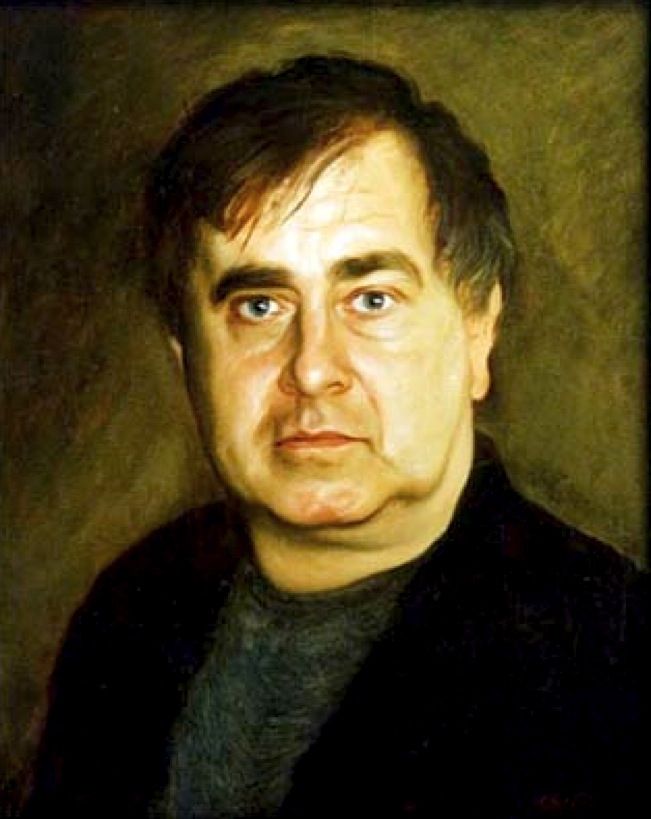

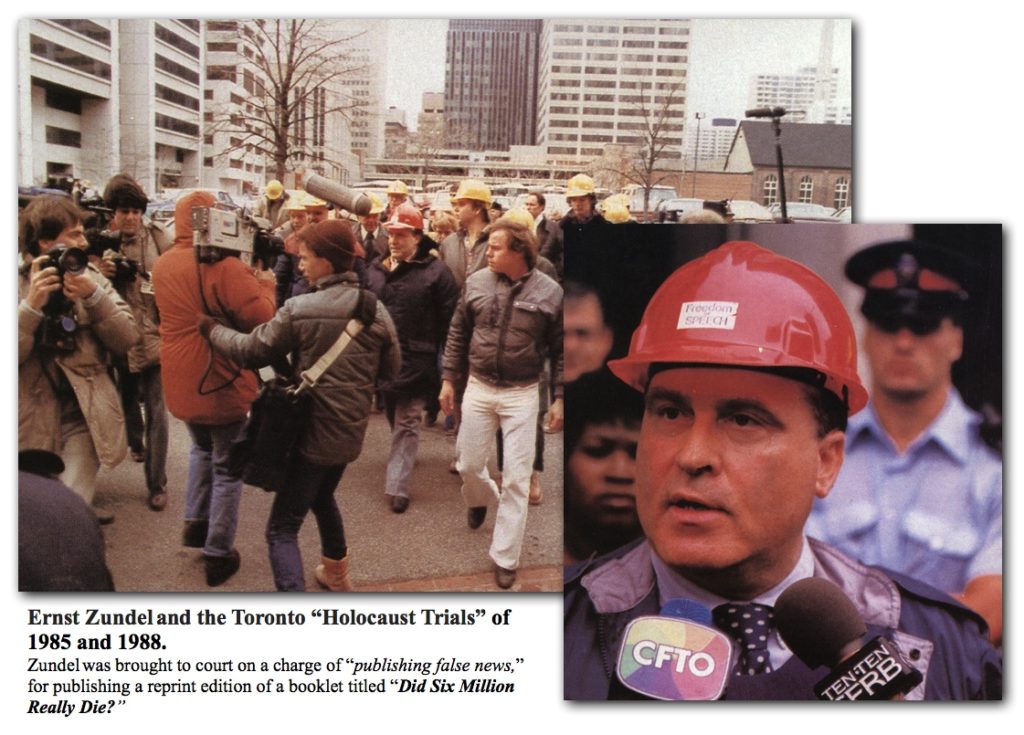
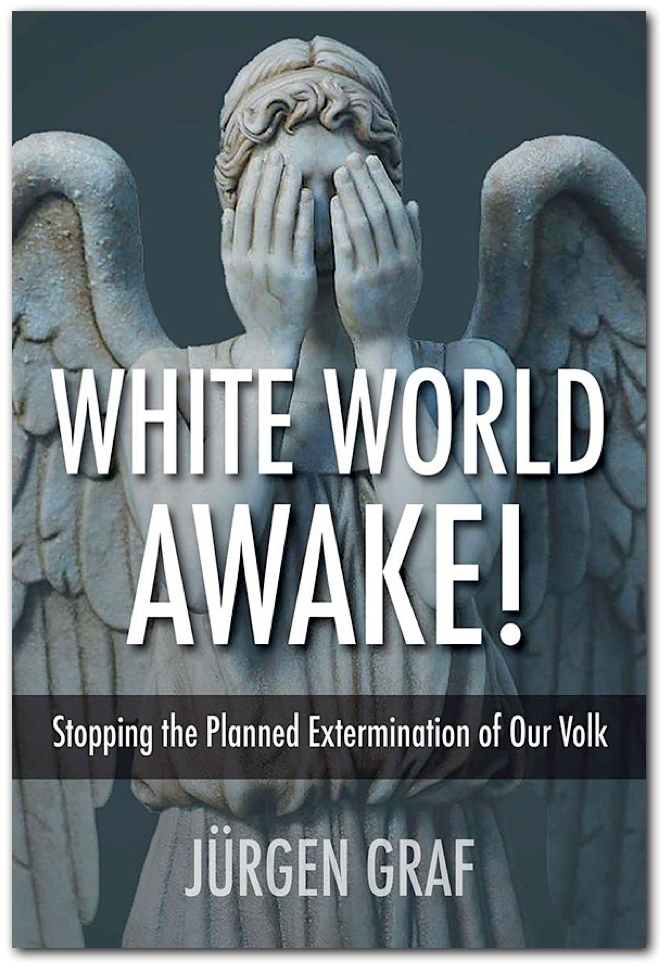




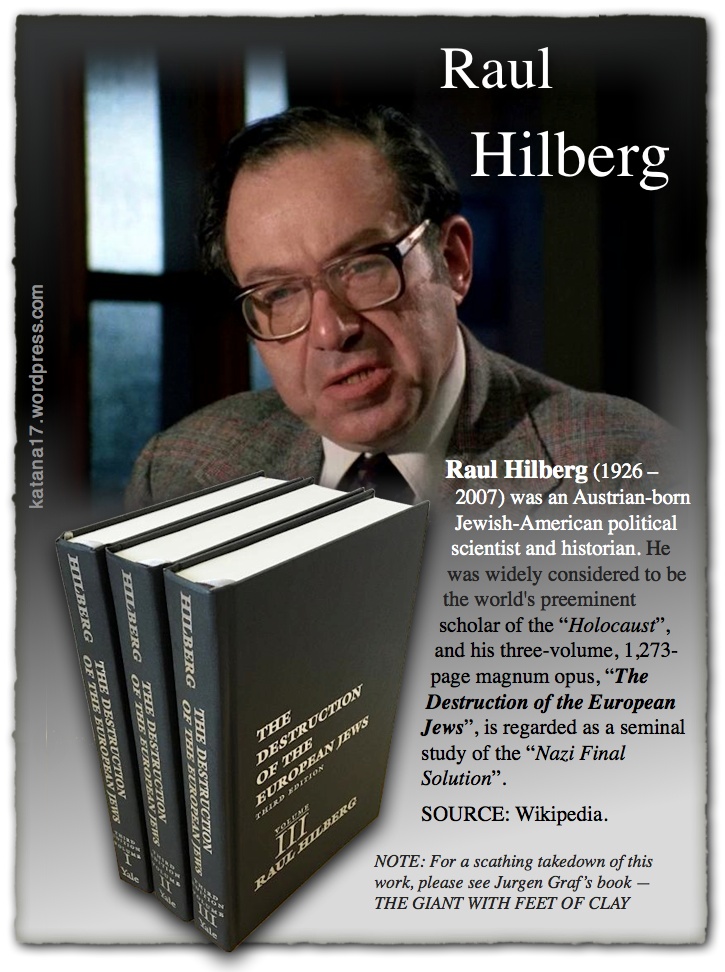


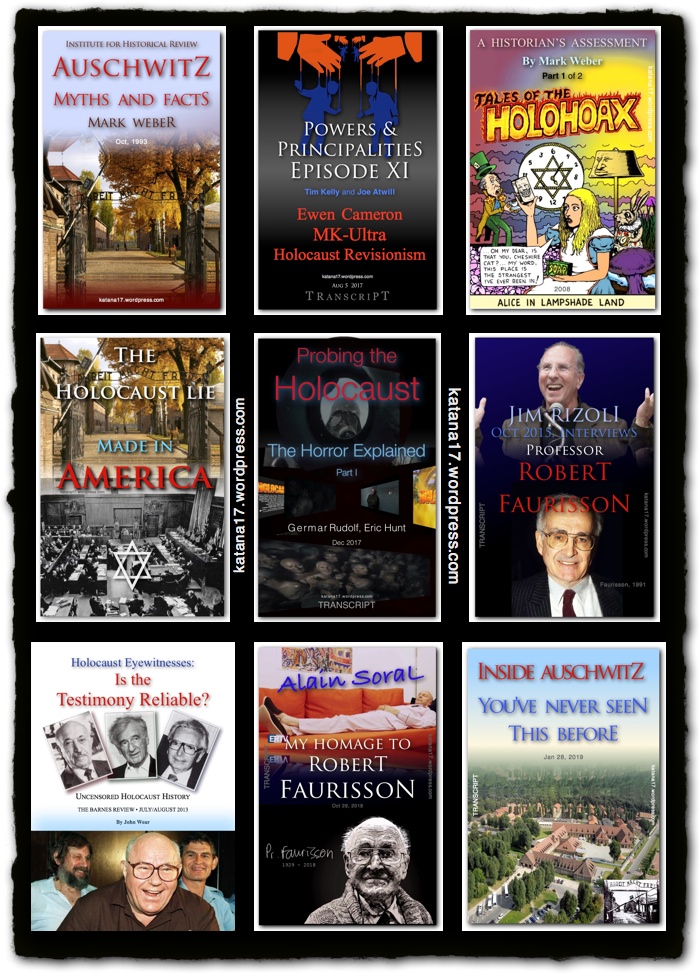







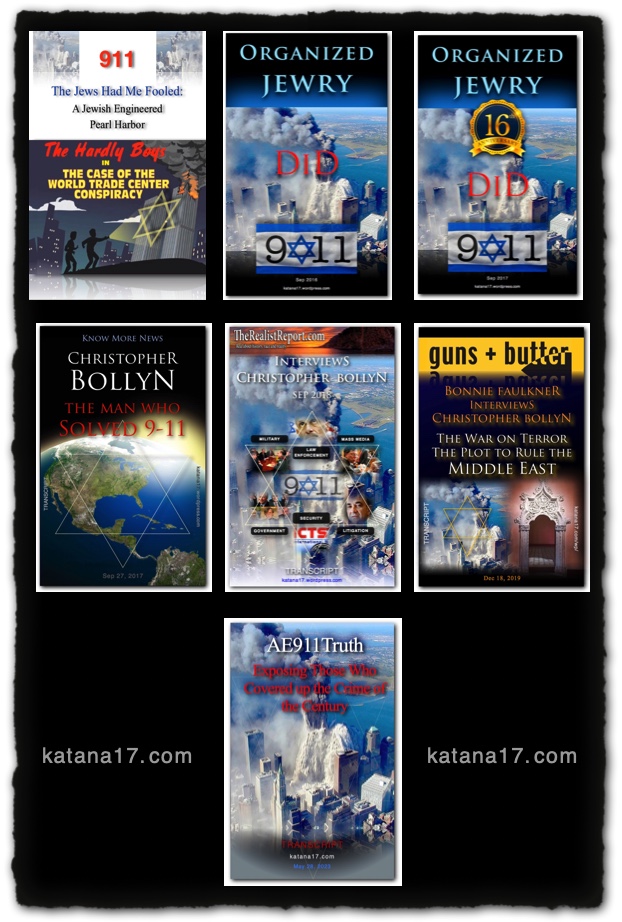
Pingback: Monika Schaefer – The Flipside with Monika – Ep 24 – Prof Tony Hall – Dec 21, 2024 – Transcript | katana17
Pingback: The Flipside with Monika – Ep 36 with Jürgen Neumann on Ernst Zundel – Mar 22, 2025 – Transcript | katana17